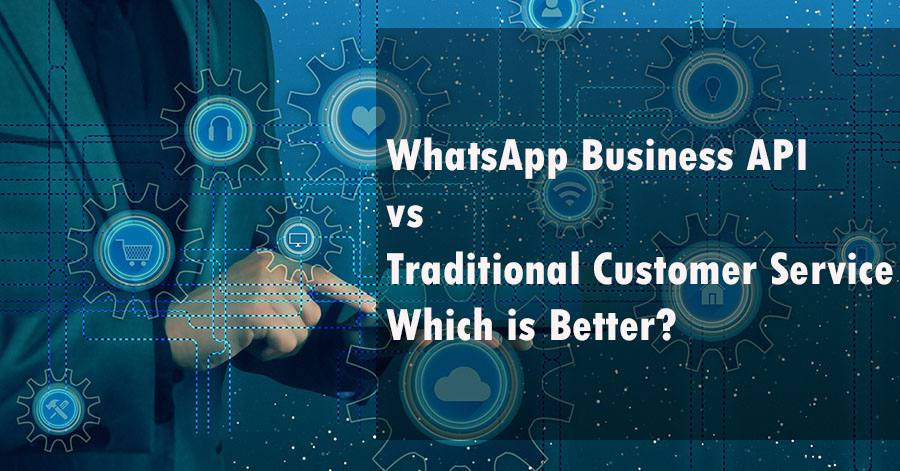Customers expect instantaneous solutions to their problems in the fast-paced world of today. People want quick, effective, and trouble-free customer service whenever they make a purchase or have a question.
Technology plays a crucial role in bridging the gap between businesses and customers in this area. The WhatsApp Business API is one such technology that has taken the world by storm.
However, is it really superior or better to traditional customer service? Let’s discover.
First, let’s talk about what the WhatsApp Business API does. Businesses can communicate with their customers through WhatsApp. Customers can now get in touch with businesses directly through WhatsApp, which makes it easier and faster to solve problems.
The WhatsApp Business API can be used by businesses to send automated messages, provide real-time assistance, and even notify customers. As a result, it is a useful tool for assisting customers.
In contrast, traditional customer service entails contacting businesses via phone, email, or even face-to-face. Even though these techniques have been around for a long time, they may be inefficient and slow.
When contacting customer service, customers may have to wait a long time on hold, deal with unresponsive emails, or deal with language barriers. Customers may become dissatisfied and frustrated as a result.
Therefore, WhatsApp Business API or traditional customer service: Which is superior?
Let’s look at some of the advantages and disadvantages of each.
The WhatsApp Business API’s benefits include:
- More quickly and effectively: Businesses can provide immediate customer support using the WhatsApp Business API, which is faster and more effective than traditional customer service methods.
- Direct, one-on-one communication: Businesses can communicate with customers in a more personalized way thanks to the WhatsApp Business API, which has the potential to improve customer satisfaction.
- Automation: Businesses can save time and increase efficiency by automating certain tasks, like sending order updates, with the WhatsApp Business API.
- Cost-effective: When it comes to international communication, the WhatsApp Business API can be more cost-effective than traditional customer service methods.
- Integration: It is easier to manage customer interactions when the WhatsApp Business API is integrated with other business tools like CRM systems.
Benefits of Providing Traditional Customer Service:
- Interaction with others: Human interaction is a part of traditional customer service, which can give it a more personal touch.
- Familiarity: The majority of customers are familiar with and may prefer traditional customer service methods like email and phone.
- Control: Because they can train their employees and monitor interactions, traditional methods give businesses greater control over the customer service experience.
- Accessibility: Some customers, particularly those who do not have access to smartphones or dependable internet connectivity, may find that traditional methods of customer service are more accessible.
Let’s now discuss the integration of the WhatsApp Business API in India.
India has emerged as one of the largest markets for WhatsApp Business API integration in recent years. The platform can be utilized by a significant number of Indian small and medium-sized businesses.
The WhatsApp Business API can be integrated into Indian businesses to enhance customer communication’s effectiveness and efficiency. By providing personalized and immediate customer service, businesses can also cultivate repeat business.
Conclusion
In conclusion, traditional customer service and the WhatsApp Business API each have their own advantages and disadvantages. While the latter offers a more personal touch and may be more familiar to some customers, the former is quicker, more cost-effective, and more efficient.
However, WhatsApp Business API integration is unquestionably the way forward for businesses in light of the development of digital technology.
Additionally, WhatsApp Business API integration can assist businesses in India, a market ripe for digital disruption.



